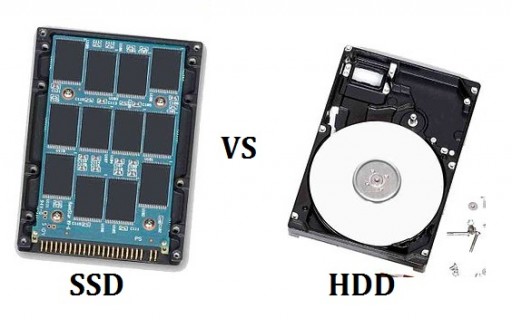SSD vs HDD: Which Hard Drive To Buy?

There was a time when people used to use floppy disks as storage devices and hard drive was not a popular term at all. However, in a course of few years the sphere of technology has engulfed everything in its way and transformed our lives. We live in the age of internet and we have data all around us. Be it for business or personal use, everyone needs hard drives to store and pass on information. If you are buying a hard drive and are confused between a SSD and HDD hard drive, go through this comparison for all your queries.
What are SDD and HDD?
Before we dwell deep into the differences that HDD and SSD bear, let’s define them and understand their characteristics. HDD is hard disk drive that uses multiple rapidly rotating disks that are coated with magnetic materials and paired with magnetic heads. On the other hand, solid state drive (SSD) is an evolved and more sophisticated storage device that uses integrated circuit assemblies as memory instead of rotating disks like HDD.
SSD vs HDD Comparison
We will consider speed, heat emission, weight & vibration, and price as the four primary parameters to make this comparison. Read on to know how both of them perform against each other.
1. Speed
HDD which is the predecessor of SSD in hard drives is certainly slower than the latter. HDDs have a higher latency period; take longer to write/read data; and support fewer input/output operations per second. This directly affects the speed with which data is transferred from one device to another or within a particular device. The slower the hard drive, slower the device as well. SSDs on the other hand are faster and support higher input/output operations.
2. Heat Emissions
Any electronic device for that matter emits heat and requires cooling and ventilation to function properly. It is observed that electronic devices have evolved to become more heat efficient and smaller with technological advancements. The same applies to hard drives as well. HDDs emit a lot of heat and consume a lot of electricity when compared to SSDs, since they have platters to rotate within. On the other hand, SSDs which are made up of integrated circuits consume less electricity and emit less heat.
3. Weight and Vibration
Since HDDs have rotating magnetic platters within they do weigh more when compared to a SSD hard drive. In addition, the rotation of the platters causes the hard drive to experience more vibrations and face unexpected crashes and damages. On the other hand, SSDs can handle up to 2000Hz of vibrations which is way more than HDDs.
4. Price
HDDs came way earlier than SSDs and the latter is an evolved, sophisticated version of the former. Though SSD hard drives are quicker, quieter, lighter and durable, they do cost a lot more than HDD hard drives. In addition, HDD hard drives offer more storage space (500 GB to 1 TB) whereas SSD hard drives offer less storage space (64GB to 256GB).





Leave a Reply